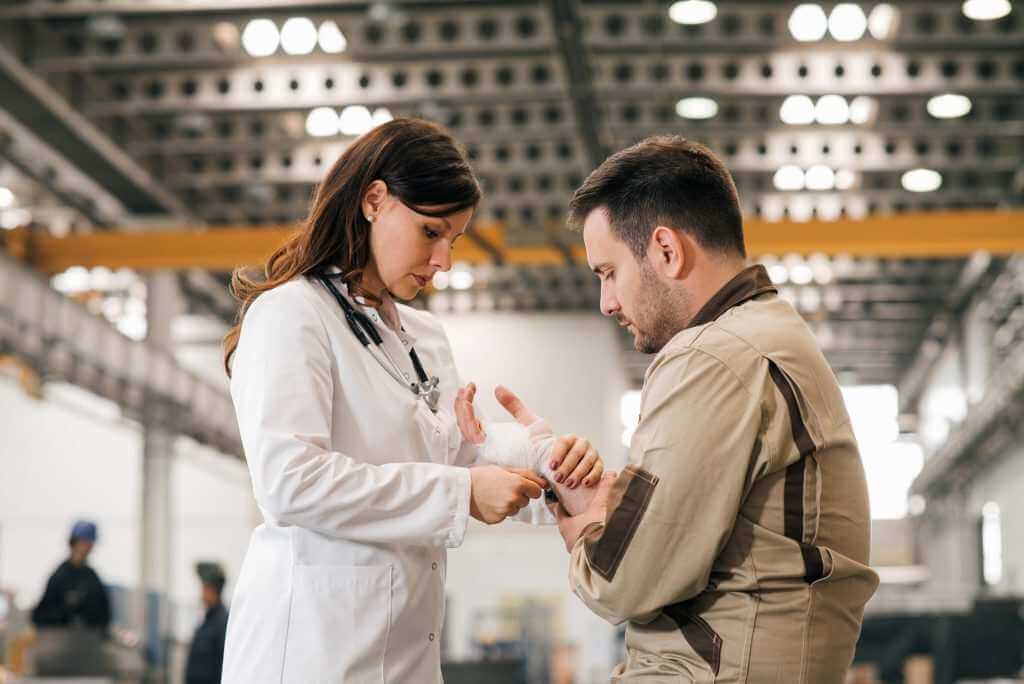Paramedics Expand Into Occupational Health With Better Care and Efficiency
Occupational Health

Contact Sara Bruner
Telephone 219-476-3462
Email sbruner@healthcall.com
Website www.HealthCall.com
To adjust to changing times, the family owned and operated company, which provides emergency medical treatment throughout Texas, expanded into occupational health, first by offering onsite COVID-19 testing to employees in the industrial sector, including factories, oil and energy facilities. Then it grew into something more.
Capitol Medical saw that mobile emergency occupational medicine was meeting an unknown but burgeoning need: delivering around-the-clock, onsite care to workers, from COVID testing to OSHA requirements to first-aid to annual check-ups. As Capitol Medical strived to meet the pandemic demands of 2020, the company then noticed broader challenges employers faced in keeping employees safe, providing on-scene care, and documenting medical data. These new opportunities for Capitol Medical would require a unique type of software unlike anything else out there.
“We were putting in a lot of man hours through COVID, and work environments can be hazardous,” said Sean Cone, President of Capitol Medical. “What we do can be life-saving, but we’re not an ambulance service. We needed something that would fit and adapt to all our different mobile health specialties, keep data in one place, and help us manage and then expand what we do.” After their due diligence, Capitol Medical selected HealthCall to provide their technical backbone. Cone also said HealthCall’s software will help the company reach new markets.
Skipping the Transport
Delivering mobile paramedicine and OSHA-compliant care to worksites required a more comprehensive digital documentation application, not something meant for a doctor’s office but not something meant for ambulance services either.
Traditionally, if a worker was injured on the job, either an ambulance was called or he or she was driven to a nearby clinic or hospital where a medical report would begin as well as likely a worker’s compensation claim. For serious injuries, especially among those working in remote areas, workers would have to wait for ambulances or a helicopter to arrive.

Capitol Medical changes that urgent occupational care landscape. Having mobile onsite occupational EMS care means an injured worker gets immediate treatment and follow-up care, can avoid an expensive trip to the hospital as well as avoid the hassle of worker’s compensation claims. There’s less loss in workplace productivity. Costly imaging tests or excessive treatment are sidestepped because workers are triaged onsite right away, and referred to specialized care if that’s needed instead of being taken straight to the hospital emergency room. Employees receive straightforward care in a familiar setting: their job.
“Traditional EMS charting systems are based on transports, what ambulances do and how they bill, but we don’t do transports,” said Jay Lynch, Capitol Medical’s Operations and Occupational Health Safety Manager. “HealthCall got our attention because of their work with community paramedicine. We bring the care to employees. We could customize our documentation needs, and since we work with employers, we could provide employers with updates and reports in real-time about how their employees are doing. HealthCall built what we wanted around us. That’s a big deal in the occupational health world because if you send a worker to a clinic, that worker’s medical report becomes tied up in the clinic’s billing system.”
No More Phone Tag
Combining HealthCall’s innovative software with Capitol Medical’s mobile approach saves companies money on minor incidents, Lynch explained “but on major incidents, it’s the employees who really benefit. They’re not stuck waiting 30 minutes for an ambulance or a helicopter to arrive. We see them right away in-person or onscreen.”
For employers who have ongoing partnerships with Capitol Medical but perhaps not daily onsite mobile care, HealthCall’s telemedicine option allows Capitol Medical to reach workers quickly, whether it’s a remote location or in the middle of the night, and connect them to physicians right away.
“HealthCall’s telemedicine option really sold us,” said Lynch. “Typically, an ambulance paramedic arrives to treat an injured worker and has to call in the injury, describe what happened over the phone with the doctor, and every paramedic describes things differently. With HealthCall’s telemedicine, the employer dials an 800 number, the injured worker is seen by us onscreen right away and connected to a doctor through us. Everyone is seeing the same thing, in real time. No more phone tag.”
Moreover, medical data is now housed in one place. No more cumbersome documentation or siloed reporting or losing valuable information because of different charting systems.
“A lot of jobs require annual physicals, and this software allows us to keep better track of employees,” said Cone. “The data storage with HealthCall is magnificent. We can have years of screenings right at our fingertips. If we see the same patient multiple times, we can better track that.”
Lynch agreed, noting that HealthCall’s user-friendly software is key to assisting busy paramedics on the ground helping workers stay safe. “I say if you can use a smartphone,” he said, “you can use HealthCall.”
